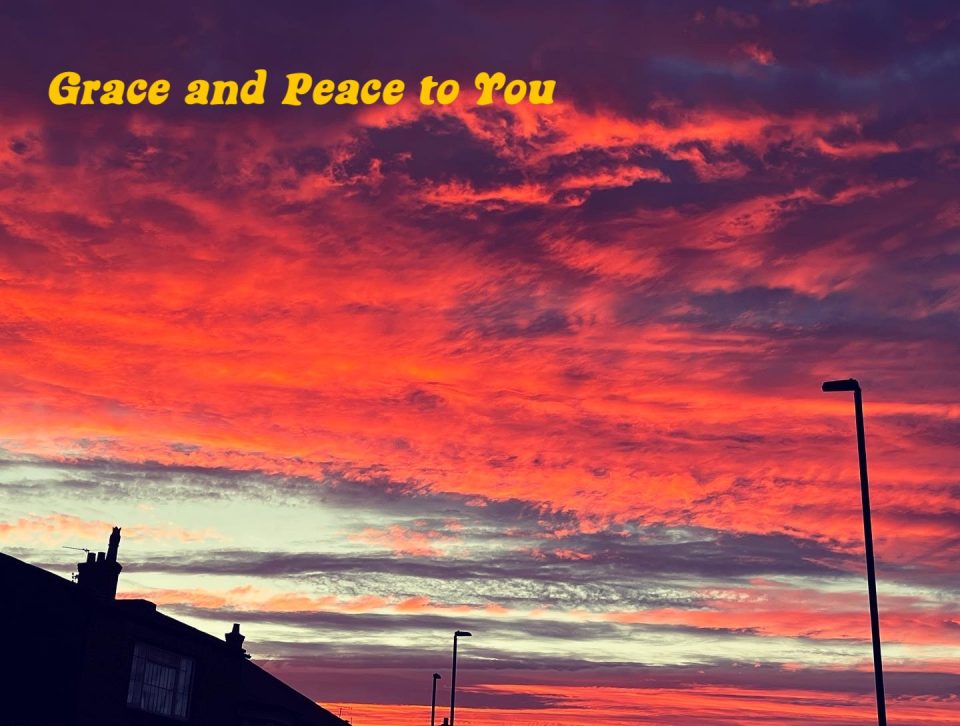Hi folks, we are meeting at the Crescent club in the upstairs front bar at 7.30pm, we hope to see you there. This weeks blog is written by Sue.
Well, here we are sliding into the last chapter of the book ‘How the Bible works’… I say sliding into the last chapter as it has not been an easy read. It has been challenging, anxiety-provoking (Pete’s description) and at times setting off all the fear within me with a whole load of questions, doubts and a lot of caution. And yet this last chapter brings this roller coaster ride to a gracious and peaceful stop with acknowledgement to all those thoughts and emotions.
Pete summarises that chapters 1-13 represent a normal part of the Christian journey, both past and present. And like our Jewish ancestors, have been re-imaging God from the sacred past into the here and now. They have accepted their sacred responsibility and so should we, Pete continues, being respectful of the past but never to recreate and live in it, tied to the ancient tradition but without expecting it to be an easy load for us. The life of faith has always been about respecting this tension of the then and now, and living by wisdom.
Pete writes, by taking seriously this ancient ambiguous and diverse Bible and honouring our humanity – our experience, our reasoning, when and where you were born – and then you try and get all theses factors to speak to one another. We process God and faith not from an on high place but an advantage point of our inevitable humanity – our reason, experience,, tradition and scripture (Wesleyan Quadrilateral). The mix of this will be exciting, anxiety-provoking (you don’t say Pete)! But never dull. And God is not surprised or put off by our human limitations, He is not shocked when we ‘don’t get it,’ but understands who and what we are and that is all ok. Pete gives us this to think about, if God through Christ not only took part in humanity but also suffered in it too, perhaps we have an understanding and compassionate God, not a God who is out to get us?
Pete goes on to talk about the challenge of wisdom and as Christians we have no choice but to intentionally follow the Bible and the history of Christianity in accepting the sacred responsibility of how we speak about God which is connected to tradition and meaningful for today. It is right to ask if at some point we will cross the line from adapting the tradition to obscuring it (finally the question I’ve been asking myself throughout the book)! Pete’s answer, the fact that this concern is valid does not mean we can avoid the wisdom task altogether, the life of faith isn’t easy.
Pete presents some examples of how the Bible itself and the portraits of God are deeply rooted in the culture and times:
Yahweh – described as Mighty Warrior who slays enemies, sovereign king who makes treaties with his people
Lord, Saviour and bringer of Good News of peace and grace – mimics the language of the Roman Empire to speak of glorious Caesar as a means to pointing beyond Caesar
God – the Greek word god is Theos, it was used to speak of Zeus and other gods; the New Testament writers used it to speak of their God as the true God.
Messiah – a Jewish royal term charged with political meaning, but redefined around suffering, death, resurrection and hope for humanity.
“No God-talk can be kept from our humanity, our language of God including the past, is inescapably enmeshed with how people of any time think and talk about anything even as they speak of the One who is not bound by time and place.”
Pete encourages and then challenges us to step back and reflect for a moment that scripture itself portrays the boundless God in culturally bound ways of thinking, and if this is how the Bible actually behaves, then how can we think that the Bible’s purpose is to step around our own scared responsibility to reimagine God rather than warmly embrace it?
Pete finishes the book on this;
“Whatever fear there might be grace and peace are also found by taking the Bible seriously enough to accept the challenge of wisdom and truly own our faith here and now. That is our scared responsibility and by accepting that responsibility we will learn to let go the youthful fear of the unfamiliar and move towards wisdom and maturity. That I believe is what God wants for us. After all, God is not a helicopter parent.”
Questions:
- What has been the most scariest fairground ride you have been on?
- Has there been a moment which has both been scary and exciting at the same time?
- What are your thoughts and/or experiences about this mix of tradition, reasoning, experience and scripture to structure how you talk about God today?
- What are your thoughts regarding “if God through Christ not only took part in humanity but also suffered in it too, perhaps we have an understanding and compassionate God, not a God who is out to get us?”
- Do you have any concerns about crossing the line from adapting the tradition to obscuring it?
- What do you make of Pete’s closing comments?

Rob Wylie is the founder of BeachcomberFX and guides its leadership team. He has worked in the North East for over 20 years and has vast experience from various roles he has held. He has a passion for Fresh Expressions of Church and Pioneer Ministry as well as beer, beaches and Miniature Schnauzers.
